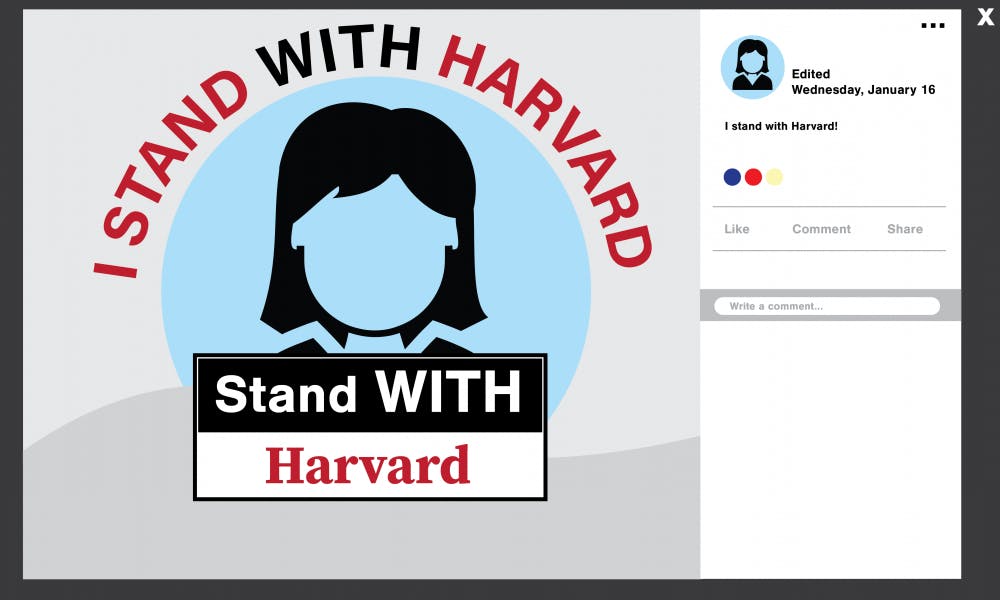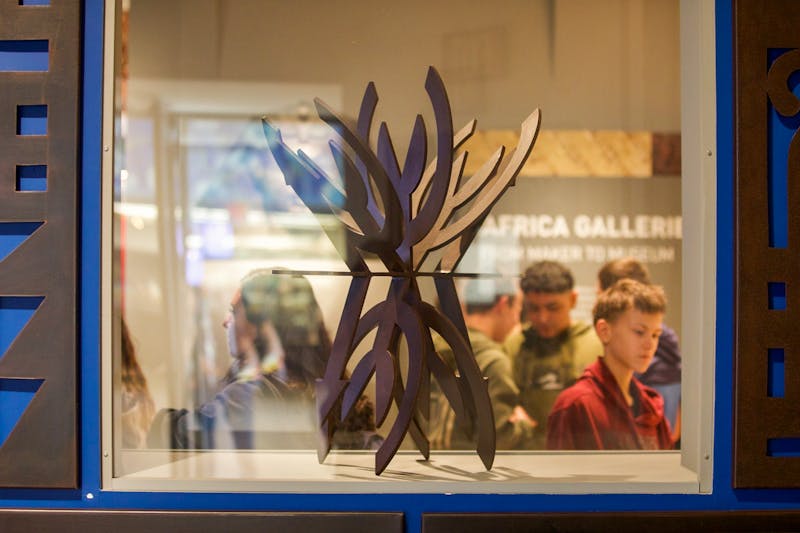
The rush process for Interfraternity Council and Panhellenic organizations is beginning, and the chance to earn coveted spots in these sororities and fraternities is dominating the conversations of hundreds of underclassmen. Outside of the Greek scene, many popular performing arts groups restrict membership to performers with a certain gender identity. Gendered groups abound at Penn, and while it’s rare for anyone to take issue with that fact, maybe more of us should.
Across the Ivy League and outside of it, students are “standing up to Harvard.” The university’s policies of banning “gender-exclusive” social groups — including fraternities, sororities, and final clubs — and of sanctioning members of unrecognized single-gender groups by barring them from campus leadership positions and university backing have been met with pushback at every stage of their development and implementation over the past few years. University officials say the measures promote “non-discrimination and inclusivity,” while critics have said that Harvard is denying its students the right of free association, going too far in the name of “political correctness,” or alternately, disenfranchising women and minority students by taking away their spaces, and subjecting its students to a “culture of intimidation and fear."
While Harvard and Penn are peer institutions, I can’t imagine a similar policy being proposed here, much less being successful. We might not have final clubs, but gendered spaces dominate our campus. Fraternities loom large — both in their physical presence on campus and their outsized influence on the social scene.
Just because highly gendered groups and spaces are so prevalent at Penn doesn’t mean the phenomena is natural or inevitable. Let’s admit it: It is kind of weird that we, as a campus, are gender segregated to such an extreme. It is vital that we discuss the impact of these organizations on the Penn community.
Penn is old, and many of our student groups have storied traditions. But the flip side of that is many of them emerged from a time with a different social climate — when female undergraduates were still “coeds” and outsiders, when Hill was built with a moat to keep men away from the then all-female dorm, when your gender was tied to assumptions about why you were in college and how you would behave.
Repurposing gendered systems like Greek life might make them palatable to a more progressive generation, but it doesn't change the fact that on a structural level, they advance a certain set of expectations about how men and women are supposed to interact. Mixers are fine, but “brotherhood” and “sisterhood” are off-limits. Men and women can party together, but not perform together. Underlying all of this is the assumption that women will be more comfortable in the company of women, and men in the company of men. In 2019, that assumption is outdated, exclusionary of other identities and gender expressions, and juvenile.
There are many arguments for the value of single-gender groups, some of which are more valid than others. Not every kind of group is equally suited to integration — for instance, Harvard Athletics is keeping teams gendered for logistical and legal reasons (and no one is arguing that they shouldn’t). But we have to think critically about when gender-exclusive spaces are honestly necessary, and when they are just the result of tradition. Across clubs at Penn, we need to push for more groups and organizations to accept students of all gender identities.
Much has been made about the fact that Harvard's policies are erasing sororities and all-female groups — taking away valuable spaces for women. Not only does this feel like an incomplete truth in that sororities at Penn and other institutions can be expensive and selective in a way that excludes many undergraduate women, but it also seems like a dubious one. In an era where “safe spaces” are being decried and diversity of opinion is being mourned, why is it that organizations which are set up so only one gender’s voice is heard get a pass? Gender identity is a charged issue, and sometimes tailoring the conversation to specific groups can be beneficial. Still, we could gain so much more by opening up those spaces — but that will never happen when every group claims it would not work for them, and that they are the exception.
The organizations we belong to at Penn matter. They dictate what our schedules look like, the classes we take, the careers we pursue, and — maybe most importantly — the people that we spend time with. For that reason, we need to discuss what makes a member of the communities we belong to here, and whether or not gender is a crucial component of our groups' identities. A policy like Harvard’s might not be popular or feasible — now, or ever — but a student-led push to break down the barriers of the gendered spaces and organizations at Penn is long overdue.

ANA WEST is a College sophomore from Spring Lake, Mich. studying English. Her email address is anawest@sas.upenn.edu.
The Daily Pennsylvanian is an independent, student-run newspaper. Please consider making a donation to support the coverage that shapes the University. Your generosity ensures a future of strong journalism at Penn.
Donate






